Learning About Cervical Cancer Screening
Cervical cancer screening helps prevent cervical cancer. The tests include the Pap test and the HPV (human papillomavirus) test. These tests may be used alone or together. You and your healthcare provider can talk about what screening test is best for you.
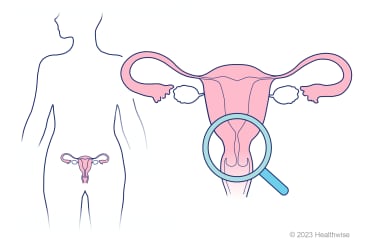
The cervix is the lower part of the uterus that opens into the vagina.
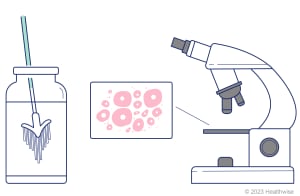
A Pap test is the main screening test for cervical cancer in Alberta. The Pap test checks for changes in the cells on the cervix. The HPV test looks for high-risk viruses that can cause cell changes that could lead to cervical cancer.
When should you have a screening test?
Depending on your age, your risk of cervical cancer, and your results from previous tests, you may need cervical cancer screening. Here is a general guide for when screening may be recommended. Screening recommendations may be different in your area.

Younger than 25
- Routine screenings are not recommended.
Ages 25 to 69
- Screening is recommended every 3 years.

Ages 70 and older
- If you have had 3 negative Pap tests results in a row in the last 10 years, screening is no longer needed.
- If you haven't had regular screenings, continue getting tested until you have 3 negative test results.
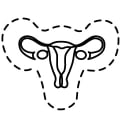
If you had a hysterectomy
- Talk to your healthcare provider. Depending on your health history, you may not need screening.
What do the results mean?
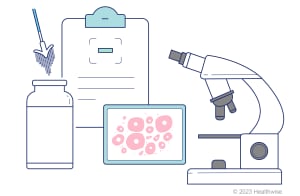
A normal Pap test means that there were no cell changes on your cervix. A negative HPV test means that no high-risk HPV viruses were found.
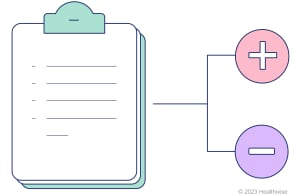
Pap results may show minor changes to the cells on your cervix or cell changes that could turn into cancer. Minor changes may go away on their own. Tests could also show that you have a high-risk type of HPV.
What to do next
Talk to your healthcare provider if you have any questions about your results. Your healthcare provider will go over the next steps and when to do them. You may need more tests or treatment.
Follow-up care is a key part of your treatment and safety. Be sure to make and go to all appointments, and call your doctor or nurse advice line (811 in most provinces and territories) if you are having problems. It's also a good idea to know your test results and keep a list of the medicines you take.
Where can you learn more?
Go to https://www.healthwise.net/patientEd
Enter P919 in the search box to learn more about "Learning About Cervical Cancer Screening".
Adaptation Date: 05/28/2024
Adapted By: Alberta Health Services
Adaptation Reviewed By: Alberta Health Services
